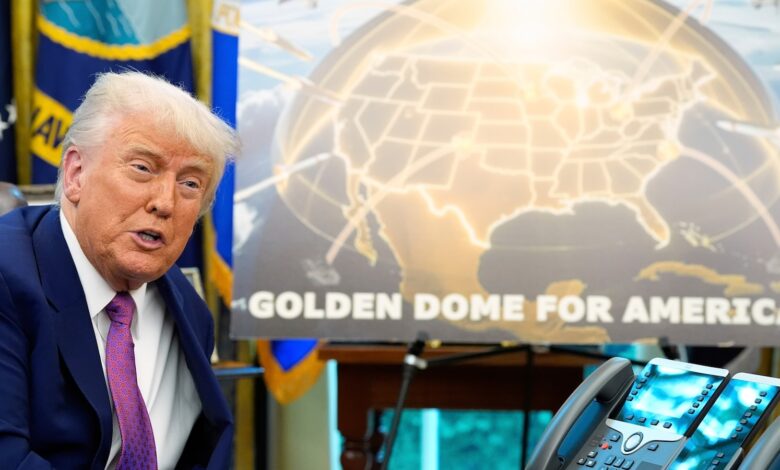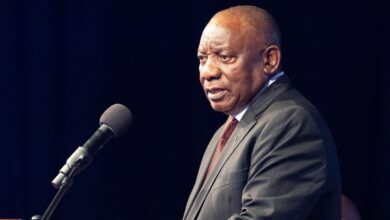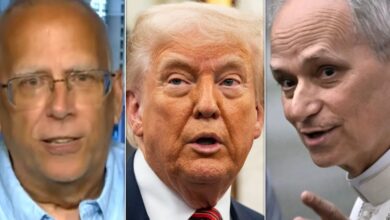Trump’s ‘Golden Dome’ risks weaponization of space, China says

The Chinese Foreign Ministry has strongly criticized President Donald Trump’s decision to move forward with his “Golden Dome” missile defense shield program, accusing him of destabilizing the global strategic balance. The ministry urged the U.S. to abandon the project, citing concerns about the potential implications for international security.
President Trump and Defense Secretary Pete Hegseth officially announced the project during a briefing at the Oval Office. The president emphasized that the missile defense shield would have the capability to intercept missiles from various locations around the world, including those launched from space. The project is estimated to cost around $175 billion and is expected to be operational within three years.
Chinese Foreign Ministry spokesperson Mao Ning expressed worries that the proposed missile defense shield could escalate tensions and trigger a space arms race. She highlighted the risk of turning outer space into a battleground and undermining existing international security and arms control mechanisms. Mao stressed that the project contradicts the principles of peaceful use of outer space outlined in the Outer Space Treaty of 1967.
Mao further criticized the project as another example of the “America First” approach that prioritizes U.S. security interests above global stability. She called on the U.S. to abandon the development and deployment of the global anti-missile system and instead focus on building trust with other major countries to uphold strategic stability.
The “Golden Dome” project was inspired by Israel’s Iron Dome system, which has been successful in intercepting short-range projectiles. President Trump’s push for a comprehensive missile defense shield for the U.S. was motivated by his observations of Israel’s defense capabilities during a conflict with Iran. However, critics have raised concerns about the necessity of such a system for the U.S., given its geographical location and existing defense mechanisms.
The project has drawn comparisons to the Cold War-era “Star Wars” program, which aimed to create a defense shield against nuclear-capable ballistic missiles. Critics of the “Golden Dome” initiative warn of the potential for a new arms race and question the feasibility of such a comprehensive defense system.
In conclusion, the Chinese government’s opposition to President Trump’s missile defense shield program reflects broader concerns about the implications for global security and strategic stability. The debate surrounding the project highlights the complex dynamics of international relations and the challenges of balancing national security interests with broader geopolitical considerations.





